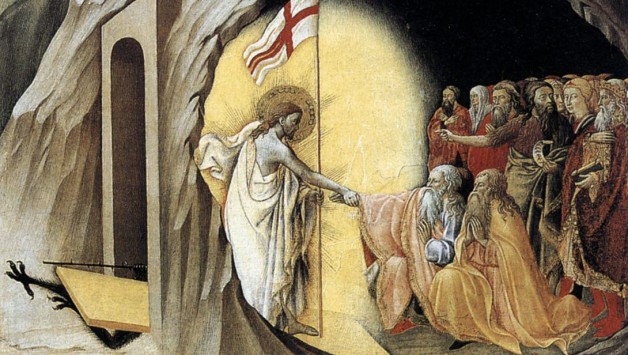One dichotomy that runs through much of life is that between theory and practice. In schools of music, for instance, there is often a divide between the “performance” faculty and those who are focused on the more esoteric disciplines of music theory or musicology. We’ve all heard the old chestnut, “Those who can, do; those who can’t, teach.” We might also think of that phrase that always frustrates teenagers who hunger and thirst for righteousness: “Do as I say, not as I do.”
The tension between theory and practice arises not because theory, in itself, is inappropriate. The problem is, if a teacher is to truly have authority, she must have both practical experience and theoretical knowledge.
An architect, for instance, needs both theoretical knowledge of proportion and style, as well as practical knowledge of materials, building techniques, and proper modes of interaction with clients and contractors. Whatever their occasional pretensions may be, neither the construction manager nor the architectural historian is an architect. Neither experience alone nor theory alone is truly authoritative.
Experience alone can only speak about the concrete, individual cases that it has encountered. Theory alone, on the other hand, is apt to fall into impractical rabbit holes. It is only when theory and practice are united in a mature and balanced manner that an individual can rightly judge and act in a particular matter.
When we turn from a consideration of practices such as building to more fundamental questions of how to live and flourish as human beings, the same principles apply. When we look for guidance in human affairs, we should consider not only the theoretical wisdom of an individual moral guide, but also the personal experience of that individual. Although we may benefit from the truth, no matter who speaks it, it is easier to trust the testimony of one who lives out in his own life the principles he annunciates.
When we consider the teacher Jesus Christ, we encounter not merely a philosopher propounding platitudes and paradigms, but a person who by both words and deeds reveals to us the meaning of human existence. As Pope Benedict recently taught, “In Jesus of Nazareth, we encounter the face of God, descended from Heaven to immerse Himself in the world of mankind and to teach ‘the art of living’, the road to happiness; to free us from sin and to make us true children of God.”
One of the remarkable implications of the Incarnation is that if God has truly become man in Christ Jesus, then the words that Christ speaks are not only the result of divine theory, but also derive from a truly human experience of the human condition. Having become like us in all things but sin, Christ is able to speak with authority about human life.
In his life and works, Christ not only teaches us to flourish naturally as human beings, but further invites us to the supernatural life of grace, which is a participation in the life of God. But even in this respect his human experience comes into play. In his institution of the sacraments, for instance, Christ chooses to use material things so as to appeal to our nature as sensory creatures, and further specifies words and things for each sacrament that effectively signify the inward grace which he intends to communicate. In his preaching, Christ chooses images from both the natural world and from the diverse forms of human interaction. Think, for example, of the parable of the mustard seed or the parable of the wicked judge capitulating to the insistent widow.
As we prepare for the liturgical commemoration of the Incarnation this Christmas, we might fruitfully consider the importance of Christ’s human experience by contrasting him with another individual who vies for our attention and imitation. In the De Trinitate, St. Augustine makes a striking comparison between Christ and Satan: Christ is the Mediator between God and Men, whereas the Devil is the Mediator of Death.
Into the place where the mediator of death transported us without accompanying us there himself, that is into the death of the flesh, there the Lord our God by the hidden and wholly mysterious decree of his high divine justice introduced the healing means of our amendment. (De Trinitate, IV, 15)
The devil, we might say, has theory, but not practice. He has no experience of living a human life, or of dying a human death. Christ, the wisdom of God and the power of God, has taken on human nature in such a way that he shares our life and bears our death. Whose authority should we trust?
✠
Image: Master of the Osservanza, Christ’s Descent into Limbo







